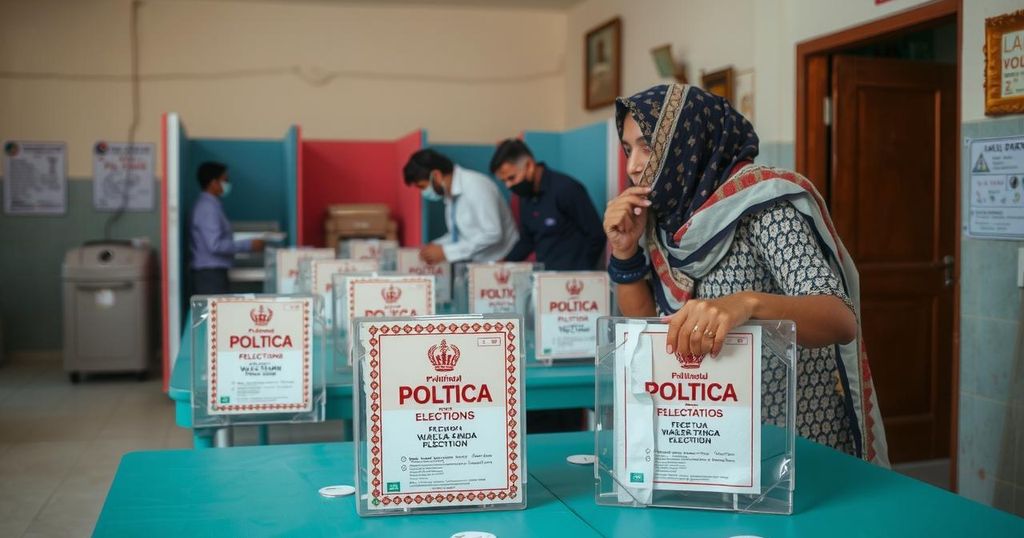Chad’s Parliamentary Election: A Divisive Vote Amid Calls for Boycott
Chad is conducting its first parliamentary election in 13 years amid opposition boycotts and low voter turnout. The elections are presented by the government as a transition to democracy, but local organizations and opposition parties express concerns over pre-determined results and irregularities. President Deby urges citizens to participate, yet many are skeptical of the election’s integrity.
Voting has commenced in Chad’s inaugural parliamentary election in over a decade, designed by the government as a pivotal stride toward concluding military governance. Despite the opportunity for more than eight million voters to elect a new parliament, provincial assemblies, and local councils, the opposition has called for a boycott, claiming the elections were predetermined. As polling opened in the capital N’Djamena, turnout appeared low, attributed by officials to unfavorable weather conditions.
President Mahamat Idriss Deby Itno, who assumed power following a military coup in 2021, has engaged with the electorate, encouraging participation. Many opposition parties are skeptical, asserting that results have already been coded in advance, while various citizens expressed hope for systemic change in employment, justice, and equality. The election process continues amidst security challenges and allegations of voter fraud.
The government maintains that the elections signify the final phase in a democratic transition established after the long presidency of Deby’s deceased father. Voting is being scrutinized by approximately 100 foreign observers, as it takes place against the backdrop of regional conflict and legislation affecting Chadian life.
Chad has experienced a prolonged period of military rule, which has prompted international calls for democratic governance. Citizens have had little input in governance since the last parliamentary election 13 years ago. The recent call for elections represents an attempt by the government to pave the way toward democratic reforms while facing opposition criticism and challenges related to voter engagement. The socio-economic conditions in Chad remain dire, affecting citizens’ perceptions of the electoral process.
In conclusion, the parliamentary elections in Chad are unfolding against a complex backdrop of political tension, opposition boycott, and significant social challenges. While the government showcases this electoral process as a crucial advancement toward democracy, disenchantment among voters and allegations of predetermined outcomes threaten the legitimacy of the election results. The eventual turnout and reactions from both the government and the opposition will determine the future political landscape in Chad.
Original Source: www.aljazeera.com




Post Comment